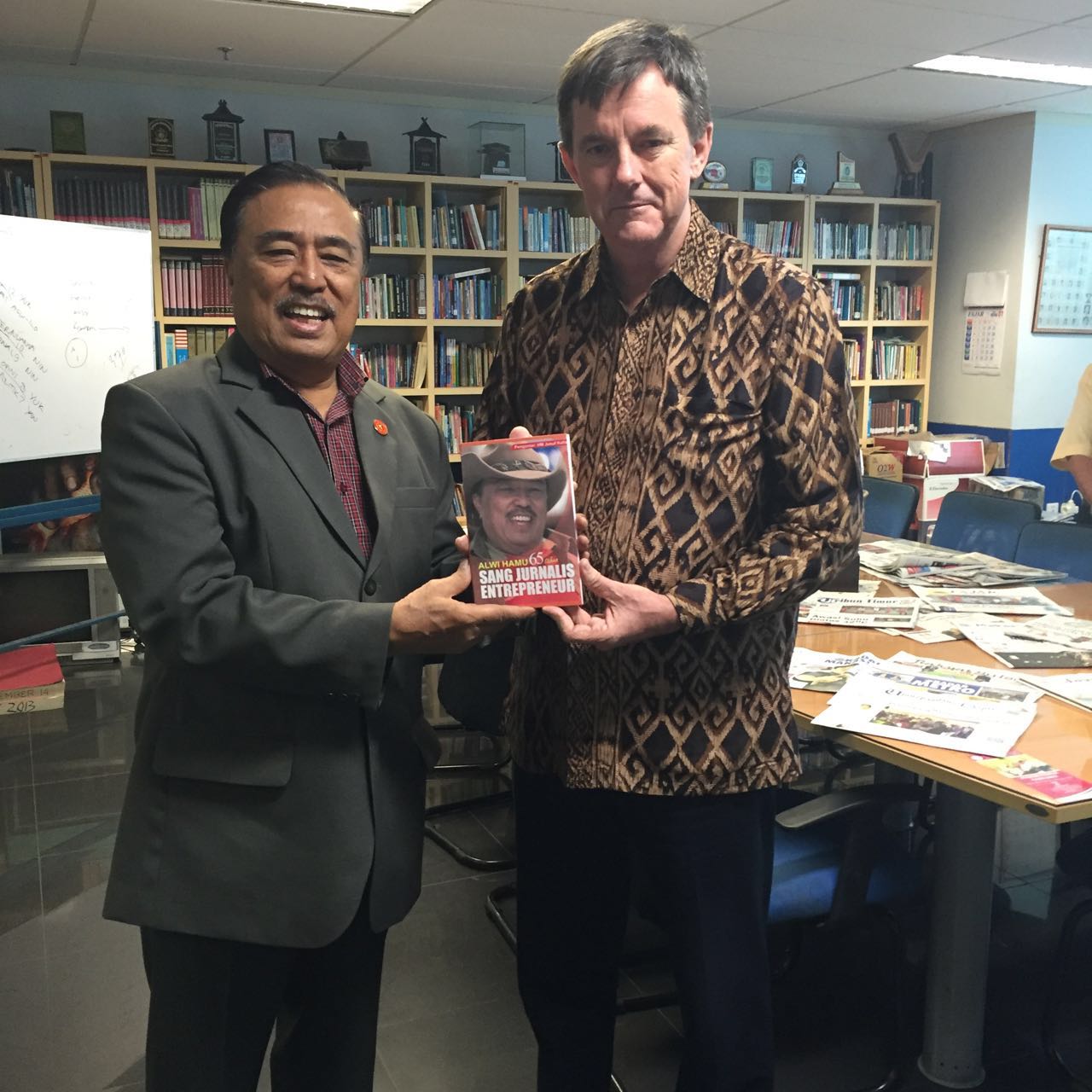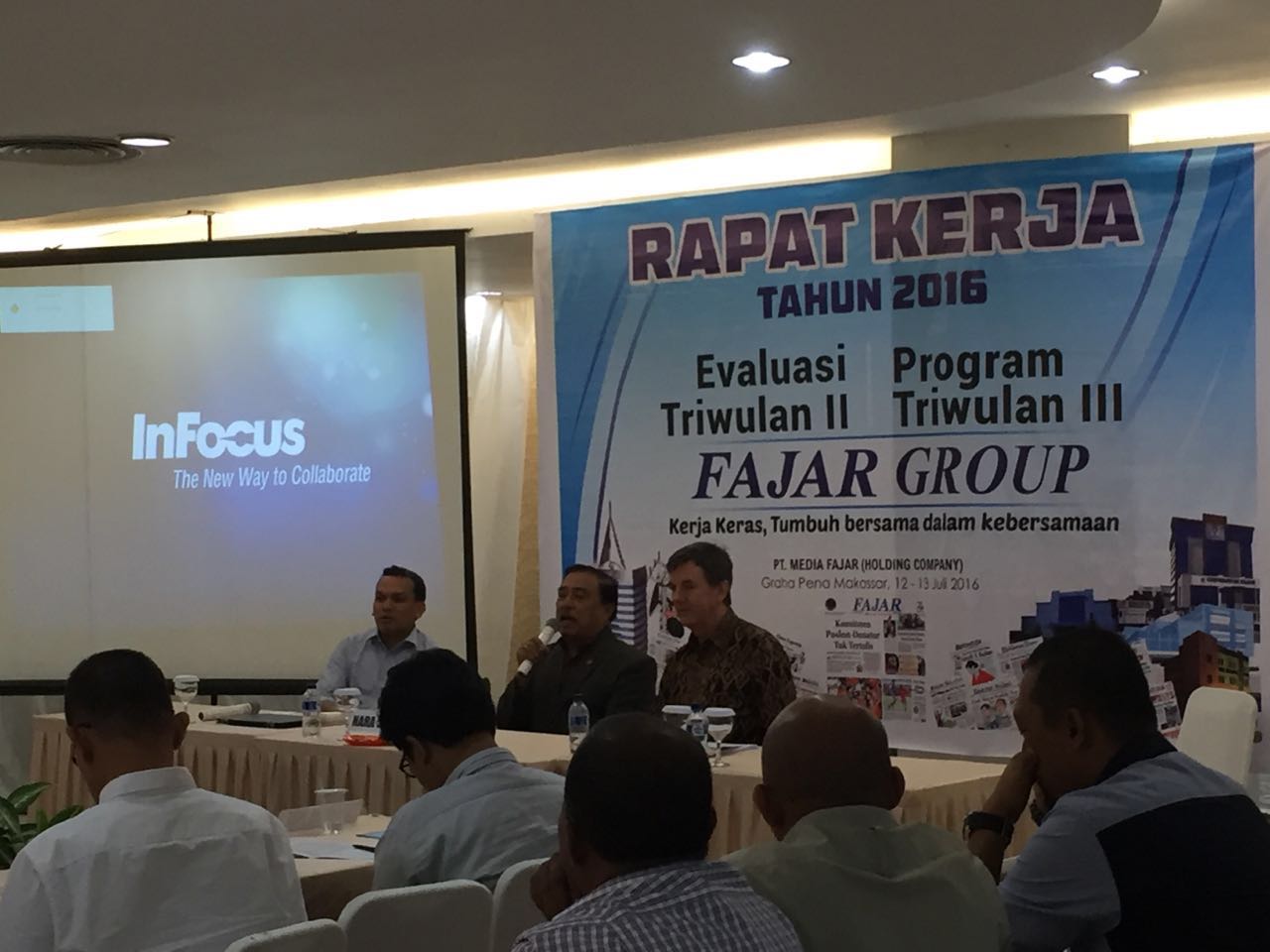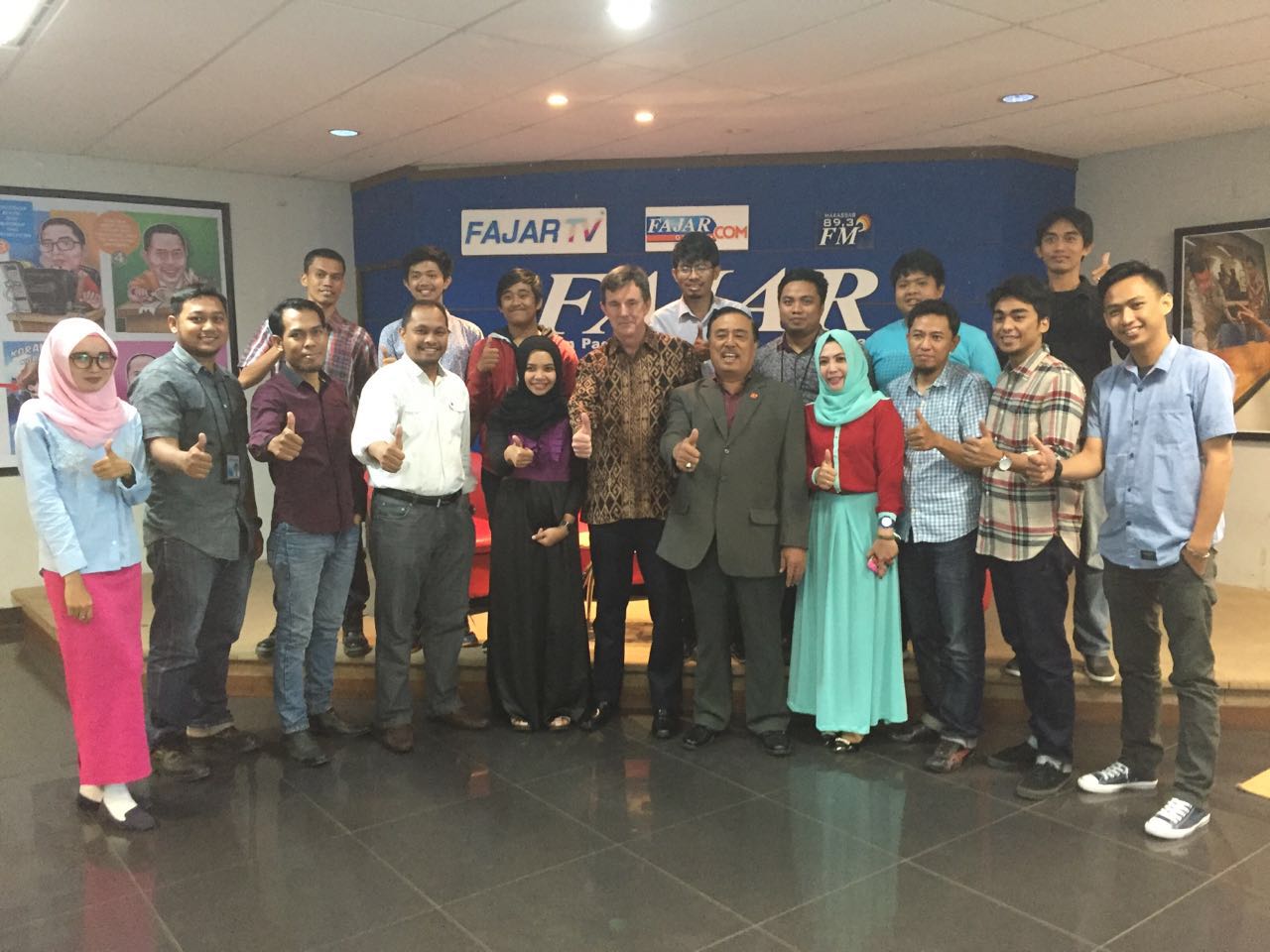In a world where most of us get our news on-line through Twitter, news media portals or email alerts, the print media in eastern Indonesia is still going strong. There are good reasons for this – local communities still need a source of local news, and national and international issues tend to crowd out local stories in on-line portals. And in traditional communities such as are found across eastern Indonesia, news from a newspaper still carries greater credibility. Also in many isolated places east of Makassar internet access is limited so newspapers remain the key source of news and information.
Recently on a visit to Bau-bau on the island of Buton (see my previous blog) when I arrived late in the evening at the hotel, I found news of my arrival had preceded me – by newspaper. On the front page of one of the small local dailies, the Kendari Pos, there was an article about my visit to Kendari and planned visit to Buton, and the Kendari Pos had arrived in Bau-bau early that morning.
I was fortunate this week to be taken on a tour of the headquarters of the largest newspaper network in eastern Indonesia, the Fajar Media Group. The founder and owner is veteran journalist and businessman Alwi Hamu. He was a student activist in the 1960s and built up the Fajar newspaper in Makassar, joining the Jawa Pos Group in 1987. Although retired from formal roles in the Fajar Group, at 73 he continues to work in nurturing his businesses. He was generous with his time and introduced me to the journalists of the news room.

Pak Alwi also took me into a separate meeting of Fajar Group journalists from all over eastern Indonesia. They were participating in the firm’s annual performance evaluation process. So this opportunity was gold for a diplomat whose job includes promoting awareness of his country’s capabilities and interests. Thanks to Pak Alwi I was able to speak to a room full of journalists from all over the region I cover. I told them why we have opened up a Consulate-General in Makassar and said I would be visiting their provinces over the next year, so would be in contact with them. They were keen for me to come to their provinces – and indeed one of the Fajar group journalists from Buton that I had met on my earlier visit was in that room.
The Fajar group publishes 72 daily newspapers and 10 monthly magazines, and has 10 local TV stations across eastern Indonesia. The newspapers include dailies in Ambon, Bau-bau, Bone, Bulukumba, Denpasar, Kendari, Kolaka, Kupang, Makassar, Mamuju, Palopo and Palu. Its main competitor is the Tribun network which has dailies in many cities across all of Indonesia, including several in eastern Indonesia not covered by the Fajar group such as Manado. All these papers have on-line versions.

These local newspapers are very important for local news and information. And they are vital to Indonesia’s evolving democracy as organs for expressing competing views on local topics, for example opinions about proposed local development projects, or views about the capabilities of potential gubernatorial or mayoral candidates. The local newspapers also get a large chunk of their revenue from political candidates. In one regional capital I recently visited candidates for local elections in 2018 were already filling the front pages of the local dailies with advertisements.
This vibrant local newspaper sector will continue for now, although the journalists I have spoken with are aware of the challenges their publications will face from social media and diverse on-line news sources over the coming years. Fajar on-line (http://fajar.co.id) and TribunTimur (http://makassar.tribunnews.com/) already tweet many of their stories.
But the competition and provincial nature of these publications means sometimes you have to expect a little bit of reinterpretation of what you say in interviews. In a recent interview I was asked for my views on prospects for developing tourism destinations in South Sulawesi. I said frankly that the distances involved in getting to some of these beautiful places – eg Toraja Land, Bira and the lovely beaches of Bulukumba etc – are an obstacle in getting tourists from overseas to go there. I said that targeting tourists in Bali and trying to get them to come to places in eastern Indonesia might be a good strategy.
The report of that interview included a promise from me that I would help promote South Sulawesi as a tourist destination among tourist agencies in Bali! While I don’t mind being promoted as a good bloke willing to help out, of course I made no such promise. My responsibility is to provide advice and support to Australian investors interested in opportunities in eastern Indonesia.
So, always be prepared for that odd misquote, or reinterpretation, and don’t get too worked up over it. As they say in this game, any news is good news! Well, maybe most news …. is good news.

***
